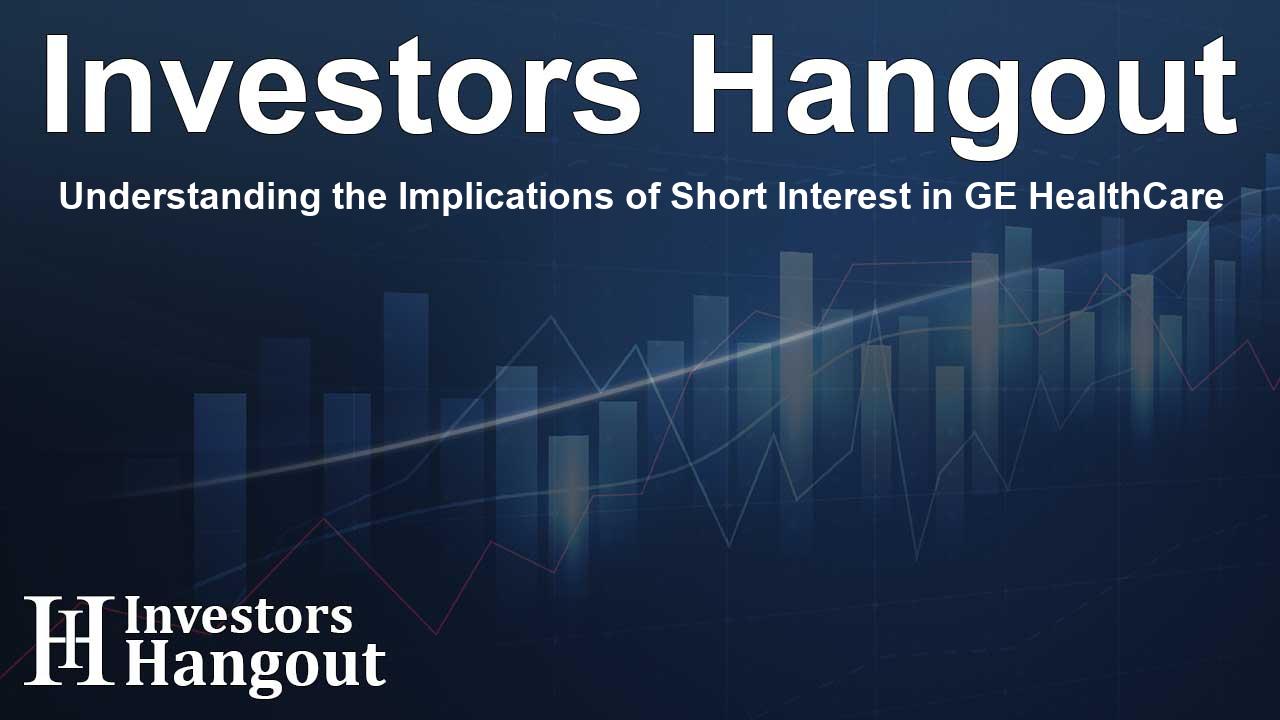Understanding the Implications of Short Interest in GE HealthCare

Analyzing Short Interest for GE HealthCare Technologies
Recently, the short percent of float for GE HealthCare Technologies (GEHC) has seen a notable increase of 6.2% since its latest report. Currently, the company has 9.24 million shares sold short, representing 2.57% of its total available trading shares. On average, traders would need about 3.56 days to cover their short positions based on trading volumes.
The Significance of Short Interest
Short interest refers to the total number of shares that have been sold short, remaining uncovered by traders. This practice, known as short selling, involves selling shares that the seller does not own, with the expectation that the stock price will decrease. If the price falls, the trader profits; conversely, if the price rises, losses occur.
Monitoring short interest is critical, as it often reflects market sentiment regarding a stock. A rise in short interest can indicate a bearish outlook from investors, while a decrease may suggest a shift towards a more bullish perspective.
Visualizing GE HealthCare's Short Interest Trends
Recent data indicates that the percentage of shares sold short in GE HealthCare Technologies has increased since the last report. While this does not guarantee that the stock price will decline in the near future, it is important for traders and investors to recognize that short selling activity is on the rise.
GE HealthCare's Short Interest Compared to Industry Peers
Evaluating a company's short interest alongside its peers is a common practice among investors and analysts. A company's peers may include organizations with comparable attributes, including size, industry, age, and financial profiles. To find a peer group, investors often review documents such as the 10-K or proxy filings or conduct a similarity analysis.
Recent analyses show that GE HealthCare Technologies has a short interest of 2.57% of float, which is lower than the average of 3.65% for its peer group. This suggests that GEHC might be perceived as a more stable investment relative to similar companies.
Interestingly, increasing short interest does not always represent a negative outlook for a stock. In certain market conditions, this can indicate anticipation of a potential short squeeze, where the stock price may unexpectedly rise, forcing short sellers to buy back shares to cover their positions, which drives the price even higher.
Conclusion: The Future of GE HealthCare Technologies
As GE HealthCare Technologies continues to experience fluctuations in its short interest, investors should remain vigilant. Understanding the implications of short interest can provide valuable insights into market dynamics and investor sentiment. Keeping a close eye on market trends and peer comparisons will aid in making informed investment decisions moving forward.
Frequently Asked Questions
What is short interest and why is it important?
Short interest indicates the number of shares sold short but not yet covered. It's vital as it reflects market sentiment towards a stock, signaling potential bearish or bullish outlooks.
How does short selling work?
Short selling involves selling shares not owned by the seller, with the hope that the stock price will decline, enabling them to purchase the shares back at a lower price.
What has been the trend in GE HealthCare's short interest?
GE HealthCare's short interest has increased by 6.2%, with 9.24 million shares sold short, reflecting a rising trend in recent reports.
How does GE HealthCare's short interest compare to its peers?
GE HealthCare Technologies has a short interest of 2.57%, which is lower than its peer group average of 3.65%, indicating relatively less bearish sentiment among investors.
Can increasing short interest be a good sign?
Yes, rising short interest may suggest a potential short squeeze, where stock prices could rise unexpectedly, prompting short sellers to rapidly cover their positions.
About Investors Hangout
Investors Hangout is a leading online stock forum for financial discussion and learning, offering a wide range of free tools and resources. It draws in traders of all levels, who exchange market knowledge, investigate trading tactics, and keep an eye on industry developments in real time. Featuring financial articles, stock message boards, quotes, charts, company profiles, and live news updates. Through cooperative learning and a wealth of informational resources, it helps users from novices creating their first portfolios to experts honing their techniques. Join Investors Hangout today: https://investorshangout.com/
Disclaimer: The content of this article is solely for general informational purposes only; it does not represent legal, financial, or investment advice. Investors Hangout does not offer financial advice; the author is not a licensed financial advisor. Consult a qualified advisor before making any financial or investment decisions based on this article. The author's interpretation of publicly available data shapes the opinions presented here; as a result, they should not be taken as advice to purchase, sell, or hold any securities mentioned or any other investments. The author does not guarantee the accuracy, completeness, or timeliness of any material, providing it "as is." Information and market conditions may change; past performance is not indicative of future outcomes. If any of the material offered here is inaccurate, please contact us for corrections.